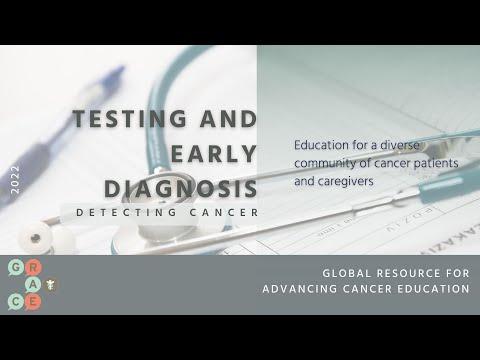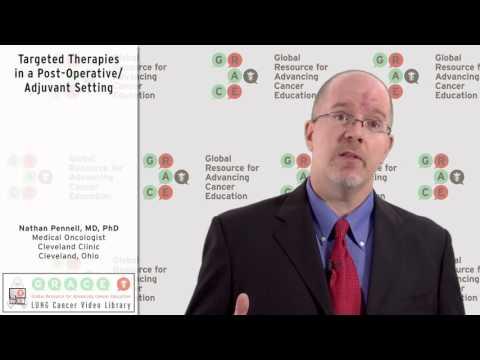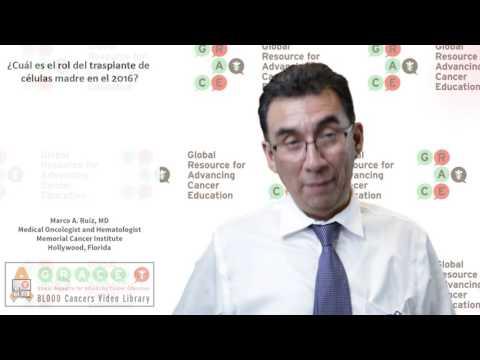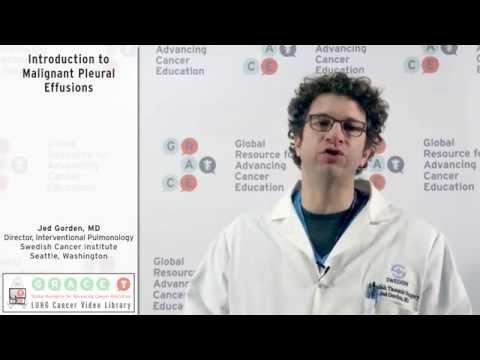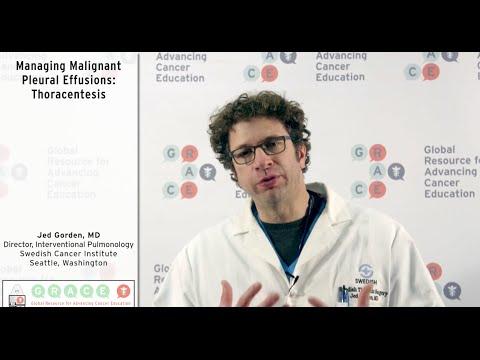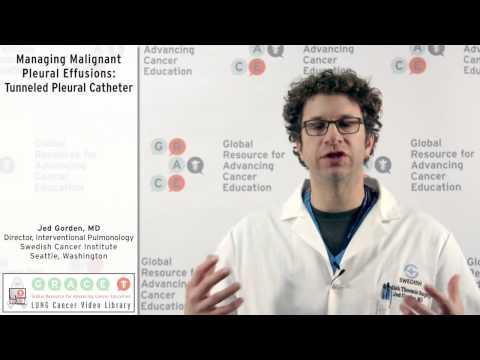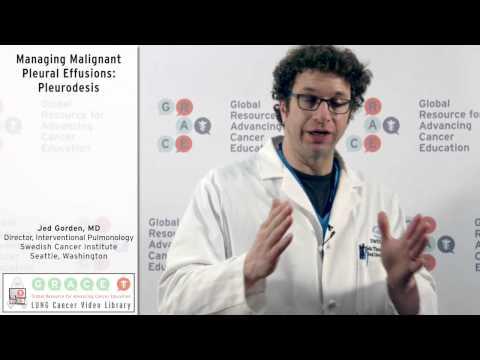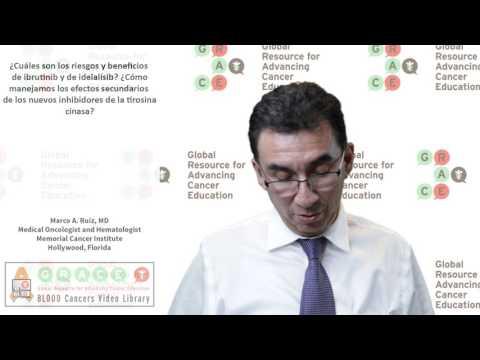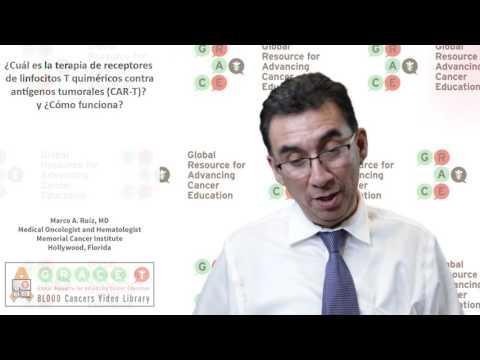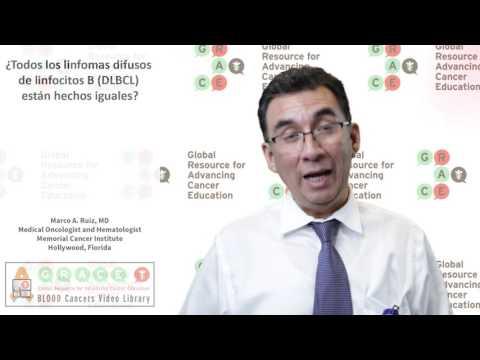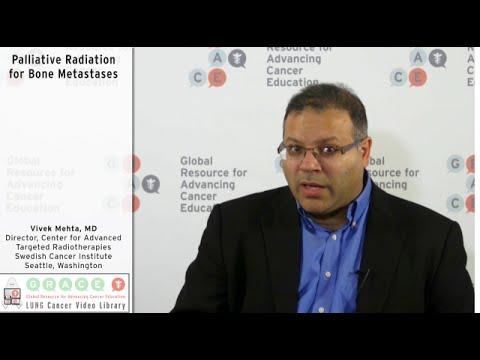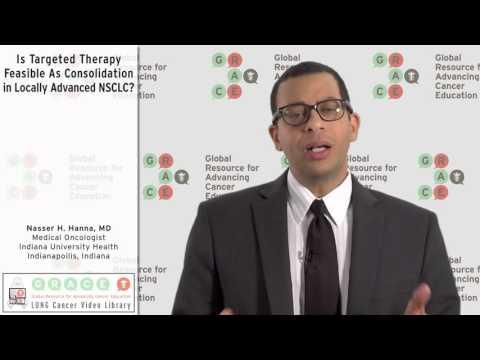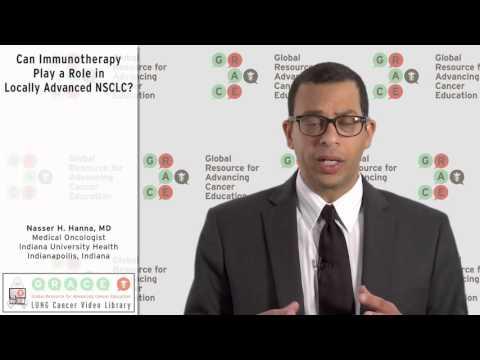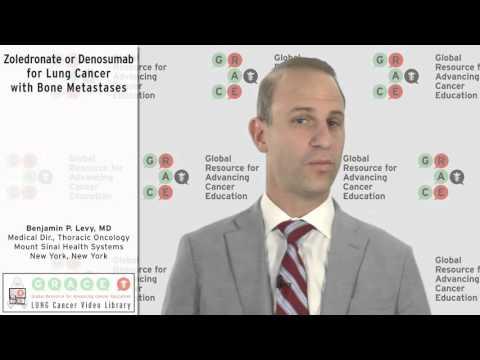For this 2022 Program: Testing and Early Diagnosis, Drs. Devika Das, Medical Oncologist, Hematologist, UAB Medicine, Clinical Assistant Professor, University of Alabama Birmingham; Dr. Rana McKay, Medical Oncologist, Associate Professor of Medicine, UC San Diego; and Dr. Medhavi Gupta, Hematologist
Video Library
Search the Video Library
Video Language
Filter by Cancer Type:
Displaying Results 1 - 15 of 91
Please Note: New Treatments Have Emerged Since this Original Post
Dr. Nathan Pennell, Cleveland Clinic, reviews the available trial evidence for the use of targeted therapies in the post-operative/adjuvant setting.
For this series, GRACE sat down with Marco Ruiz, MD, an oncologist at Memorial Cancer Institute specializing in hematologic or blood cancers, including leukemia, lymphoma, myelodysplastic syndrome (MDS) and myelofibrosis. He is also an experienced bone marrow transplant specialist and is active in
Interventional pulmonologist Dr. Jed Gorden reviews malignant pleural effusions (MPEs) are a common complication of lung cancer and some other cancers. Transcript So, I wanted to talk to you today about pleural effusions. Pleural effusions — it’s a complex term, and it’s a very common problem, so
Dr. Jed Gorden describes the details of how a thoracentesis is performed in order to clarify the diagnosis and treat symptoms of a malignant pleural effusion (MPE). Transcript With the pleural fluid that’s built up around the lung — this fluid that exist in between the linings, or as we discussed
A tunneled pleural catheter is an excellent way to manage the symptoms of a recurrent malignant pleural effusion. Dr. Jed Gorden describes how it is placed and how it works. Transcript So we’re talking today about pleural fluid — fluid that resides around the lung, in-between this space that we’re
Dr. Jed Gorden reviews the technique of pleurodesis to manage the complication of recurrent malignant pleural effusion (MPE). Transcript So we’re talking today about pleural fluid, the fluid that builds up around the lung — fluid that causes people be short of breath, often have symptoms like cough
For this video on the risks and benefits of Ibrutinib Idelalisib, GRACE sat down with Marco Ruiz, MD, an oncologist at Memorial Cancer Institute specializing in hematologic or blood cancers, including leukemia, lymphoma, myelodysplastic syndrome (MDS) and myelofibrosis. He is also an experienced
GRACE sat down with Dr. Marco Ruiz to discuss information regarding the chimeric T cell receptors treatment against tumoral antigens (CAR-T) and how it works (¿Cuál es la terapia de receptores de linfocitos T quiméricos contra antígenos tumorales (CAR-T)? y ¿Cómo funciona ?). Stay tuned for more on
GRACE is pleased to present updates in blood cancer treatments for our Spanish Blood Cancer Library with Dr. Marco Ruiz. Dr. Ruiz shares information regarding Chronic Lymphocytic Leukemia & Non-Hodgkin Lymphoma, (Leucemia crónica linfocítica y linfoma no Hodgkin)., specifically "Are all diffuse
Radiation therapy can be very helpful in treating painful bone metastases or those at risk for causing a fracture due to compromise of bone strength. Dr. Vivek Mehta reviews the basics of this approach. Please feel free to offer comments and raise questions in our Discussion Forums. Transcript
Dr. Nasser Hanna, Indiana University Health, reviews efforts to utilize targeted therapies as consolidation after chemoradiation in locally advanced NSCLC.
Dr. Nasser Hanna, Indiana University Health, discusses the possible role of immunotherapy in locally advanced NSCLC.
Dr. David Harpole, Duke University Medical Center, describes how he assists patients with the surgical decision-making process.
Transcript One of the important points about patients with advanced lung cancer is that 30-40% of patients will develop bone metastases. I think it’s important to recognize this is not bone cancer, this is lung cancer that’s moved to the bone, and in 30-40% of patients at some point who have

